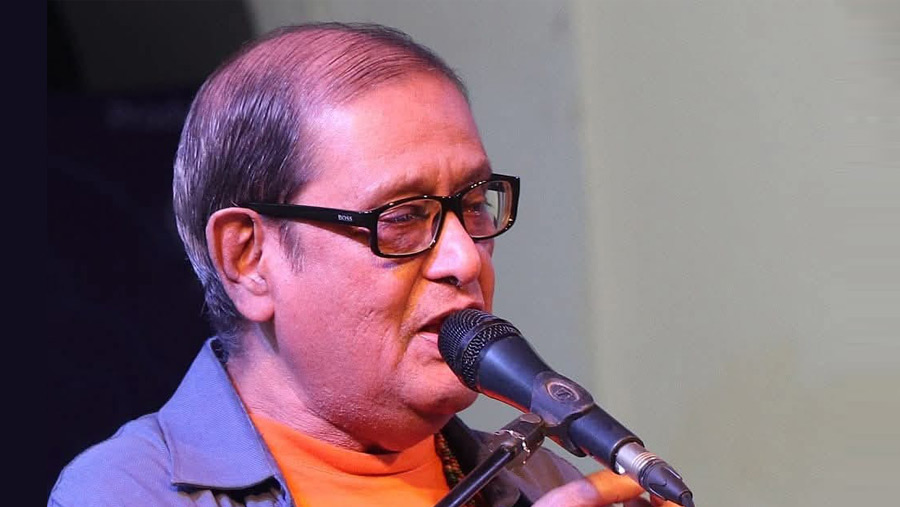


Helal Hafiz, the leading contemporary poet known for his experiment in combining rebellion with love in his poems, breathed his last at Bangabandhu Sheikh Mujib Medical University (BSMMU) on Friday (Dec 13). He was 76.
A seriously ill Hafiz, a confirmed bachelor, was rushed to the hospital from his last abode at Super Home Hostel at Shahbagh area in an unconscious state but doctors at the facility said the poet died before reaching the facility. “He was pronounced dead as he was rushed there,” said Jatiyo Press Club (JPC) General Secretary Ayub Bhuiyan.
A journalist by background Hafiz was a permanent member of the club, which appeared to be his virtual abode for years together.
His Namaz-e-Janaza will be held on the JPC premises after Zohr prayers on Saturday (Dec 14) and later he will be buried at Mirpur Martyred Intellectual Graveyard at Mirpur.
Hafiz is considered a true representative of poets of his generation having certain creative traits in an age when his nation and countries in the neighbourhood witnessed dramatic transitions particularly in the arena of politics.
The poet never associated himself directly with any political activity but his famous verses “Ekhon joubon jar juddhe jabar tar shreshtha samoy” (It's the best time for one to go to war who is in his youth) was seen in wall writings, posters, leaflets and chanted in processions at university campuses and street side walls to inspire the youths to get prepared for the Liberation War against Pakistan.
It returned as a popular slogan of student activists and left-leaning organisations during popular movements against autocratic rules in independent Bangladesh as well.
Hafiz earned the repute of being an established poet of verve, vigour and emptiness long ahead of the publication of his first collection of poems: Je Jale Agun Jwale (The water where fire is ignited) in 1986.
It earned the best sellers status in Ekushey Book Fair of the year, discarding novels by popular writers who traditionally occupy the position in Bangladesh's biggest annual book fair.
But Hafiz visibly preferred a self-exile from the literary arena for years after the publication of the Je Jale Agun Jwale.
Talking to a media correspondent few years ago he explained his silence as the outcome of a sense of fright of losing popularity after the tremendous success that reached him to the peak of fame. He, however, gradually resumed his literary activities recently coming up with his Kabita Ekattur (Poems Seventy One) to make visible again his formidable presence in the literary arena.
His literary works earned a lot of feathers in his hate in the form of awards and recognitions while he won Bangla Academy Award in 2013.
Hafiz made his room in the literature section of newspapers in his professional life as he served as a literary editor of a number of newspapers over four decades. But the instability in the newspaper industry also threw him out of the job several times, exposing him to extreme difficulties.
Critics found a dichotomy of love of land and devotion to the lover clearly visible in his poems but Hafiz found a way toward a compromise projecting himself as a “tender lover and rebel patriot”.
Born on Oct 7, 1948, in Netrakona, Helal Hafiz largely grew up at his village in his northern ancestral home passed the Secondary School Certificate (SSC) examination from Netrakona Datta High School in 1965, HSC exam from Netrakona College in 1967 and then got enrolled in Bangla Department of Dhaka University.
He made his debut as a journalist in the now defunct Dainik Purbodesh in 1972 while he was still a university student. His last work place was the Daily Jugantar.